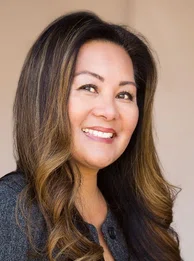
Your budget is a symbol of your values and priorities. This is what I was told time and again during all of my years as an educational administrator, whether I was writing the Single Plan for Student Achievement or the Local Control Accountability Plan. Although many education organizations (including ACSA), elected officials, and proponents of ethnic studies advocated for funding, the Legislature passed the 2025-26 Budget Act, now signed by Gov. Gavin Newsom, without specific funding that enacts the provisions of AB 101 — California’s landmark law mandating a one-semester ethnic studies course as a high school graduation requirement beginning with the class of 2030. The absence of funding for ethnic studies is a huge signal of what California does not value.
Even after the murder of George Floyd, Newsom vetoed the first ethnic studies graduation requirement bill in September 2020. He finally signed AB 101 in October 2021, as the nationwide racial justice movement continued and anti-Asian hate rose due to xenophobic remarks made by President Donald Trump. It was not the time to tell Californians that true history and systemic racism should not be discussed in classrooms, or at least during a one-semester high school course.
The current federal administration has threatened to withhold funds from educational institutions, programs, and states that have Diversity, Equity, and Inclusion programs or similar initiatives. For as much as California pushes back against certain federal initiatives, perhaps not teaching true history from the perspectives of communities of color is where our elected officials align with the federal administration. That’s a shame. Eighty percent of the students in California are from communities of color.
The studies conducted by Dee & Penner (2017) and Dee, Penner, & Bonilla (2021) demonstrated that ethnic studies courses increase graduation rates, attendance, grade point averages, and college-going rates, especially for students of color. These studies supported the original push for AB 101 and the premise that all students in California should be exposed to ethnic studies. It makes sense that we would want to increase graduation, attendance, and GPAs.
The absence of funding for ethnic studies is a huge signal of what California does not value.
Ethnic studies focuses on these four core disciplines: Black/African American, Chicana/o/x and Latina/o/x, Native American, and Asian American and Pacific Islander studies. According to the California Ethnic Studies Model Curriculum (ESMC):
“The focus on the experiences of these four disciplines provides an opportunity for students to learn of the histories, cultures, struggles, and contributions to American society of these historically marginalized peoples, which have often been untold in US history courses. ”
San Francisco Unified School District’s recent poll of students, showed that 88 percent of respondents felt that ethnic studies courses reflected their identities and 92 percent of respondents agreed that ethnic studies helped them understand people of other backgrounds than themselves. It makes sense to support students in understanding one another. The majority, if not all of our district graduate profiles include interpersonal skills such as collaboration and empathy — and ethnic studies supports this.
Critical thinking, global citizenship, and integrity are other common characteristics and competencies in various district graduate profiles. As ethnic studies works towards eradicating all forms of hate, it will support all of the cognitive and interpersonal skills that we want our students to have.
Here’s another statement from the ESMC:
“Ethnic studies courses address institutionalized systems of advantage and address the causes of racism and other forms of bigotry … School curricula must not only provide content knowledge, but must also equip students with the tools to promote understanding as community members in a changing democratic society. When schools help students acquire a social consciousness, a conscious awareness of being part of an interrelated community of others, they are better equipped to contribute to the public good and help strengthen democratic institutions.”
One of the lines that stands out is “a changing democratic society.” Our society is definitely changing. Some say it is getting “great again,” and many say that it has taken a turn for the worse. Ethnic studies provides us opportunities to not only tackle these hard questions but to act on injustices. Some call it activism, but essentially, it is civic engagement, which is also a popular graduate profile attribute and a state initiative.
Opponents have called ethnic studies just an “ideology.” The word “ideology” is defined by the Cambridge Dictionary as “a set of beliefs or principles, especially one on which a political system, party, or organization is based.”
Everything is based on some sort of belief or idea. I decided to Google “Ethnic Studies is just an ideology,” and this is what the Google AI Overview came up with:
“Ethnic studies is more than just a set of beliefs or a political viewpoint. It’s a field of study that employs research methodologies, theoretical frameworks, and scholarly analysis to investigate issues of race, ethnicity, and power.”
The Google AI Overview gets it, we should too. There exists a rigorous academic discipline that works to dismantle racism and other forms of hate, while decreasing achievement gaps and increasing opportunities for students. The State of California did not provide ongoing funding for ethnic studies, yet many educators still want professional development, many communities want courses, and many school districts are still implementing programs. Do the right thing. Find a way.
Now more than ever, the democracy where the people hold the power is at stake. All marginalized communities are under attack. The future demands that we go into it with ALL of the information, even though many parts of our history are horrible. If we don’t learn, we make the same mistakes. Ethnic studies — real ethnic studies — can help. Our students, our future, cannot wait.
Note: ACSA is here to help. Check out our Online Learning Center for a free, four-part learning series on Ethnic Studies Implementation. Learn from the original student strikers of the 1968 Black Student Union/Third World Liberation Front strike at San Francisco State University, ethnic studies professors and experts, high school and college students, and exemplary school districts. Access the course at onlinelearning.acsa.org/courses/ab-101-ethnic-studies-implementation.
Tracie Noriega, Ed.D., is ACSA’s Senior Director of Diversity, Equity & Inclusion & Professional Learning.






